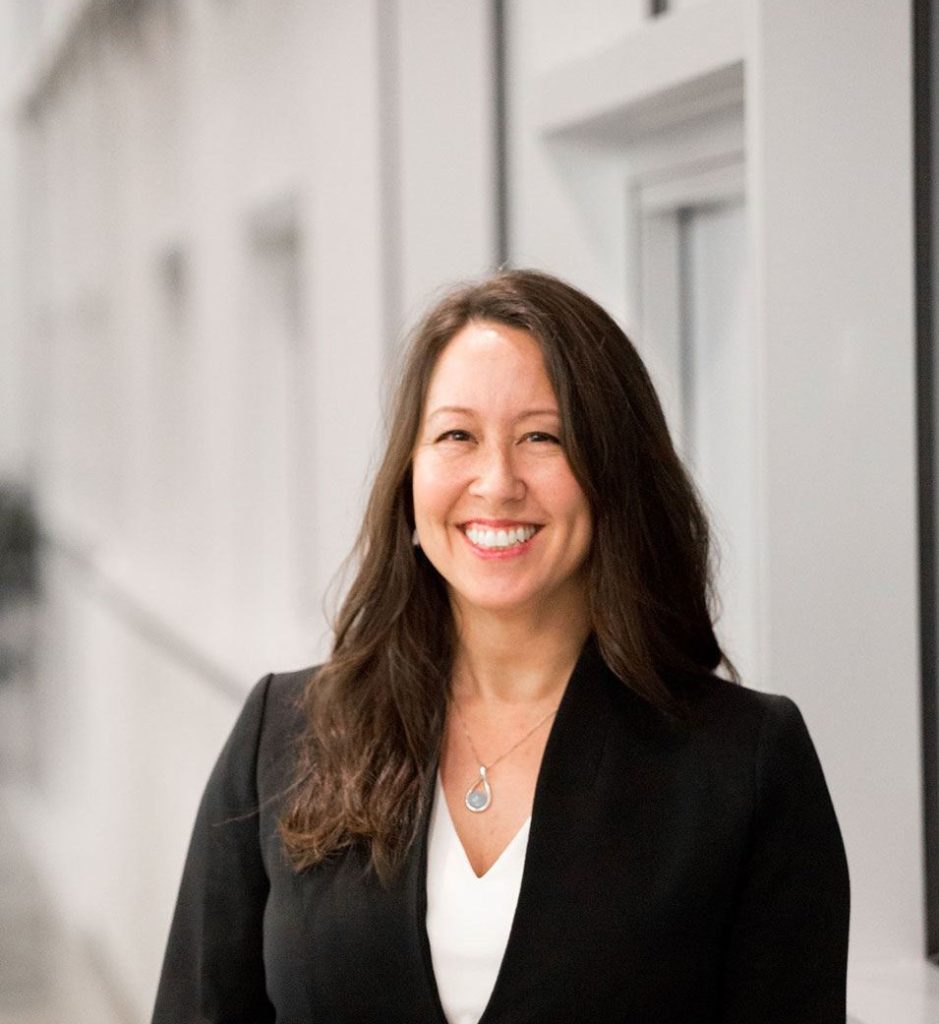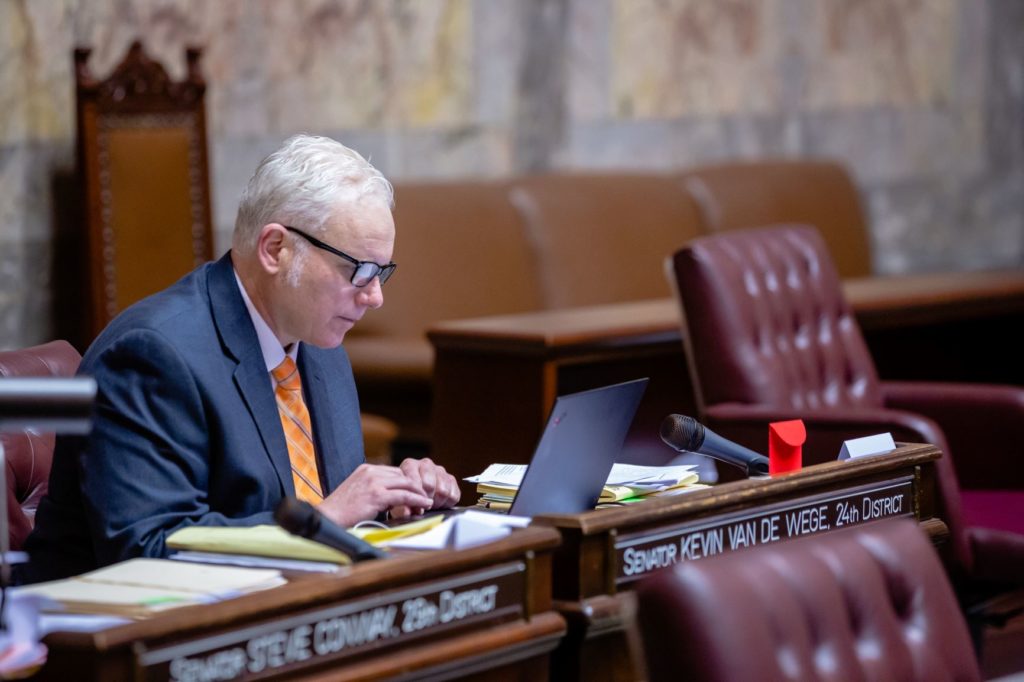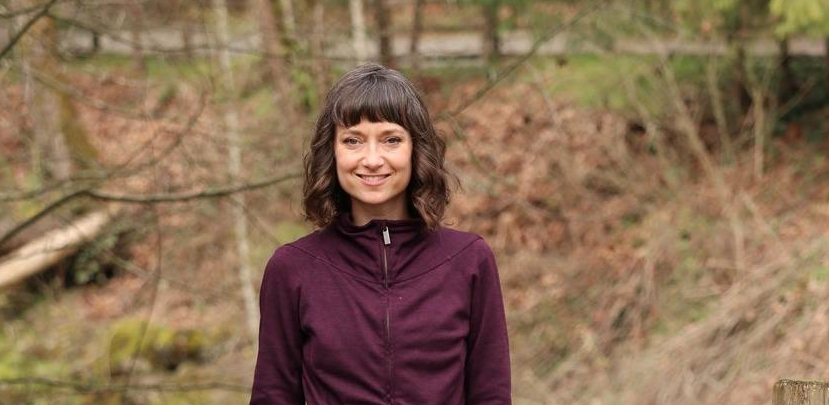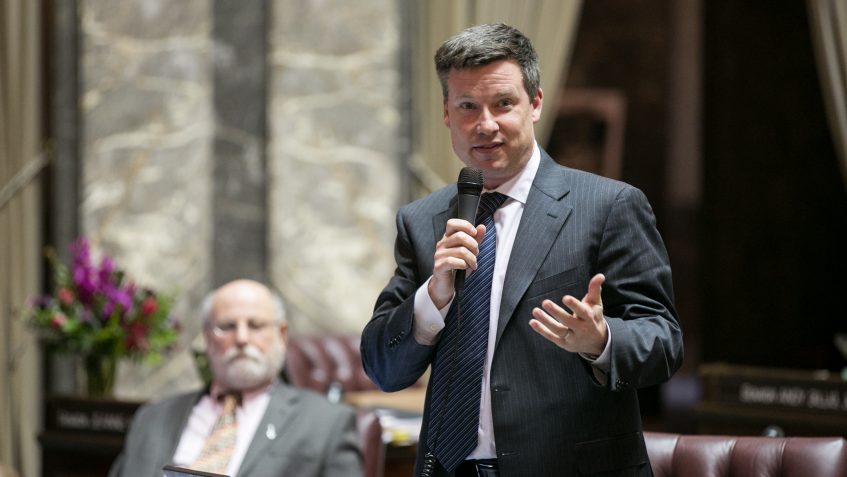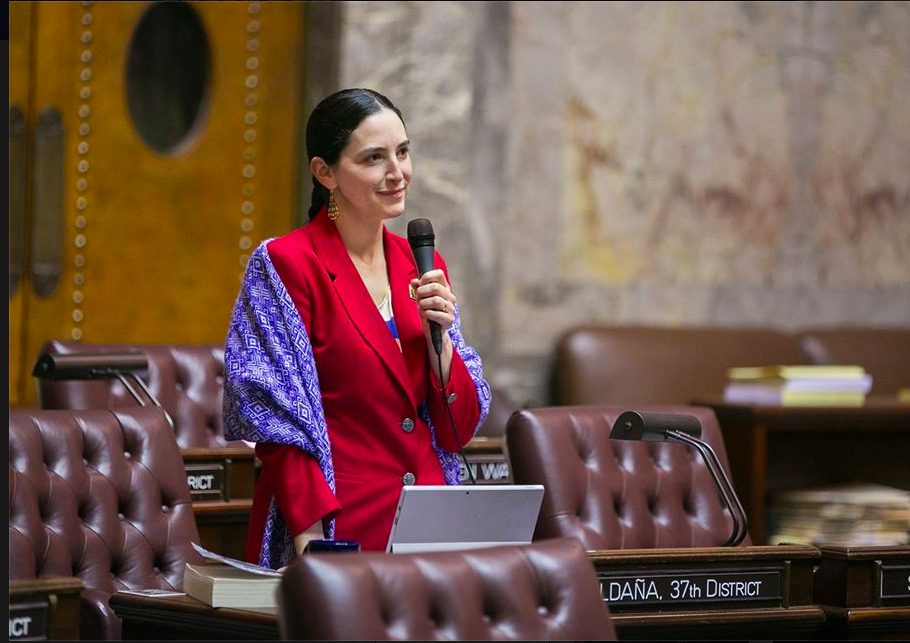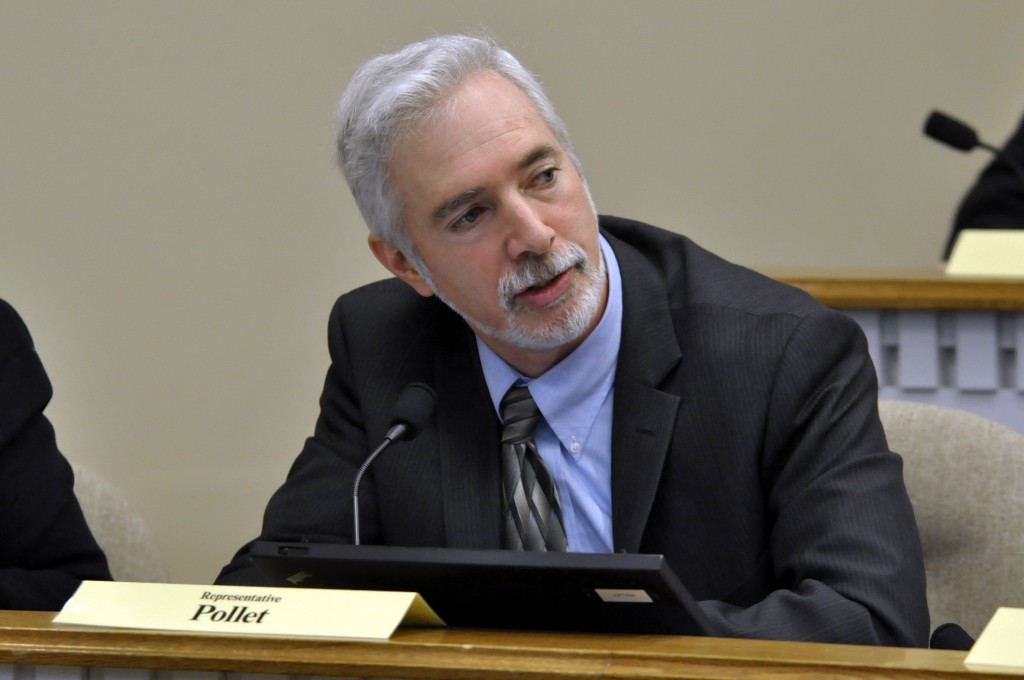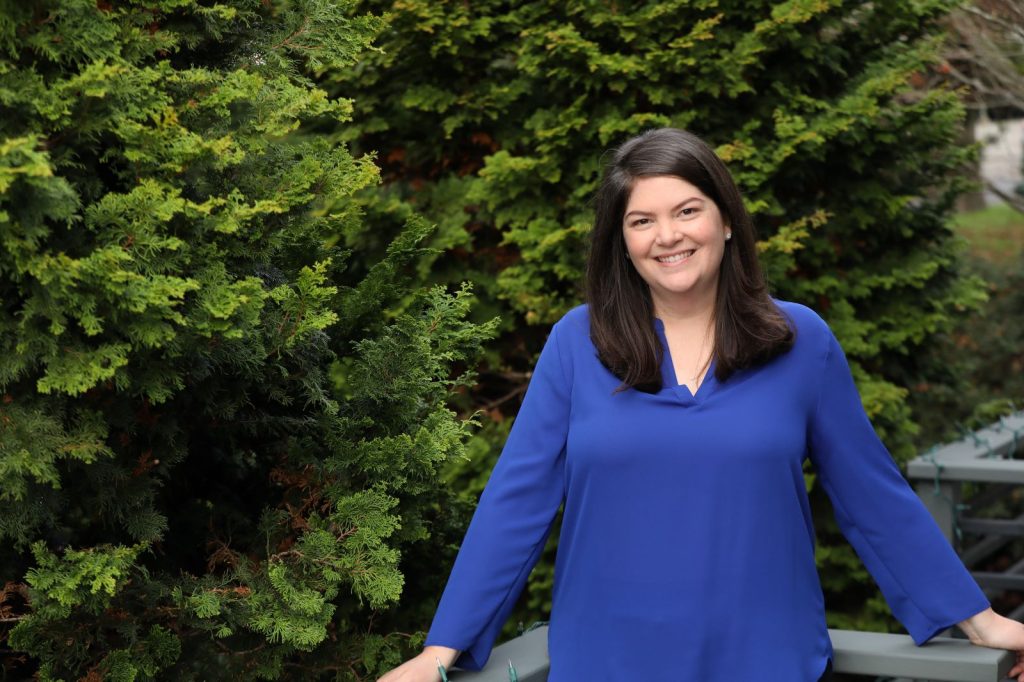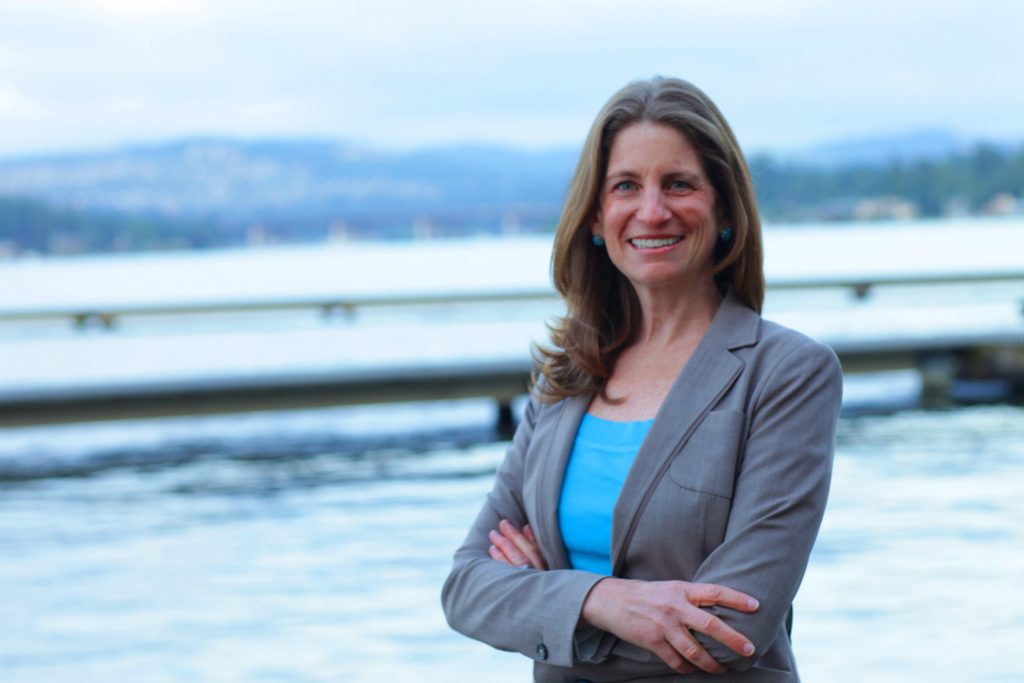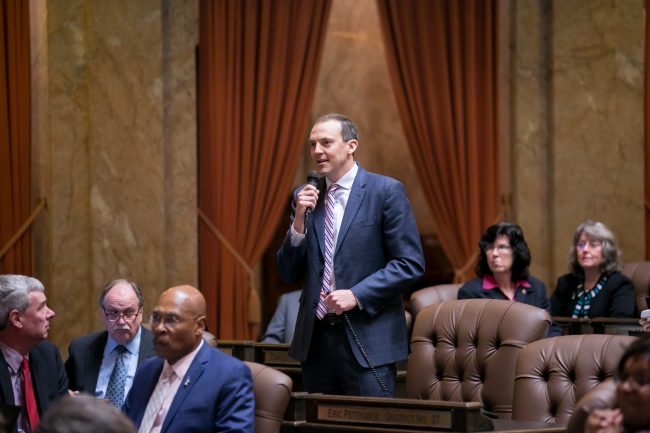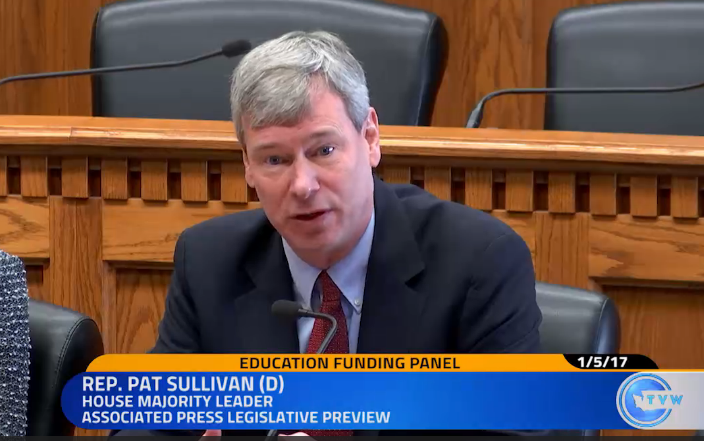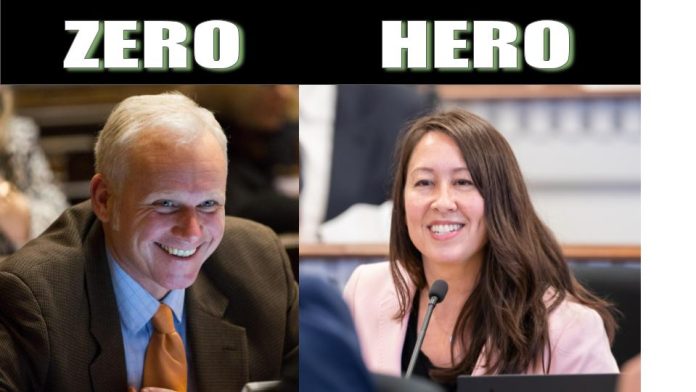
The Washington State Legislature adjourned on March 10th with some significant wins and some very concerning whiffs. Republicans stayed true to their do nothing brand, whining about not being included but gumming up the works every time they were. Unfortunately, despite their strong majorities, Democrats left too much undone and let Republicans, with aid from some turncoats within their ranks, stonewall them on some key issues. As is our custom, The Urbanist wanted to highlight some of the heroes and zeroes from this session in hopes the cream rises to the top in future sessions.
We’ve already recapped some of the biggest happenings. A promising missing middle bill, backyard cottage reform, and a key climate-focused growth management reform all failed. The legislature did pass a $17 billion transportation package, but stopped short of cutting highway widening projects as climate advocates (including The Urbanist) urged them to do. Still, the package includes a doubling of state support for local transit and active transportation projects, which represents significant progress over past packages.
Remarkably, each session a similar cast of characters keeps returning to villainous roles and another set to heroic ones, especially when it comes to urbanist priorities. So much of the future of our state and planet is wrapped up in finding solutions to the massive housing, climate, and economic justice challenges we face. Yet it seems like the same handful of Democrats keep holding the party back, even as other members show inspiring leadership and raise the banner for those causes. Voters should ponder that, as should party leaders doling out committee assignments and campaign warchests.
If Democratic leadership wants to retain top talent in their ranks and make progress on these key issues, it is really incumbent on them to remove the zeroes among their ranks who impede progress from powerful posts and instead put real leaders in positions to succeed. With a rash of early retirements, we’re already seeing some of the exciting new leaders in the legislature are fed up with the way things are done and how hard it is to make progress in a such an environment. Rep. Kirsten Harris-Talley (D – Seattle) was one to hang it up after just one term, and she pointed to a lack of support from caucus leaders and a shortage of integrity from some of her colleagues as a big reason why in an op-ed in the South Seattle Emerald.
The urgency around legislative action on housing, climate, and racial equity isn’t just ginned up by activists. These really are crises and they are quickly worsening. And rather than looking at bold solutions as a liability in elections, Democratic leaders should start thinking of them as assets. The next generation of voters is hardly thrilled to inherit an unchecked climate crisis and racist, unjust institutions our leaders spend one session modestly reforming and the next undoing half their work.
Housing prices are skyrocketing statewide. Many communities have seen two straight years of more than $100,000 gains per year in average home price. Cities like Renton, Burien, Kent, Lynnwood, and Bellingham that used to be relatively affordable places to live are increasingly inaccessible to those not making six figures. The rate of housing price increase is simply unsustainable; it’s driving displacement and the stratification of society. And the State Legislature has failed to address the underlying housing scarcity issue, despite broad coalitions and visionary leaders pushing them to so. Let’s start our list with one of those heroic leaders:
Hero 1: Rep. Davina Duerr
Rep. Davina Duerr (D – Bothell) was a runner-up last year, and this session her leadership on climate and housing issues propelled her to the top of this list. She was prime sponsor of House Bill 1099, the bill that sought to reform the Growth Management Act (GMA) which came tantalizing close to passing this session, but died at the last second. In an interview, she noted 1099 “wasn’t as high of a priority as it should have been” for leaders in Olympia.
“If timing had played out right, we totally would have had [the votes]. That’s what’s so heartbreaking,” Duerr said. “I think if it was a higher priority we would have made it happen.”
The time management on the last day of session left much to be desired. “I was frustrated because we milled for like three hours,” Duerr said, recalling how she watched the clock run out on her bill later in the evening, despite her confidence she had the votes to pass it after working her colleagues diligently over the past two years with the aid of a strong coalition. Duerr said watching HB 1099 die a slow death on the finish line was “psychological torture” and “really traumatic.”
House Speaker Laurie Jinkins (D – Olympia) blamed Republicans’ threat of filibuster for the failure, but it seems like better planning of the floor calendar could have easily avoided the impasse. And Jinkins never called the Republicans’ bluff by moving the bill. Of course, there never would have been a conference committee delaying the bill to the last day if two Senate Democrats hadn’t gutted the bill (more on that later).
Duerr is also a Bothell City Councilmember which gives her a unique perspective at two different levels of government. Bothell has led the way on the local level with pedestrianizing a downtown street, adopting missing middle housing reforms, and now the city plans to adopt HB 1099 climate-focused planning reforms even though the bill didn’t become a state law that would obligate them to do so. Both Duerr and Futurewise, the organization which led the advocacy push behind HB 1099, hope that Bothell’s example can inspire other cities to voluntarily implement the measures in the bill — already Redmond and Kenmore have followed Bothell’s lead, and Kirkland, Seattle, Pierce, King, Snohomish, and Whatcom Counties are mulling similar moves.
“1099 may be the most impactful bill that never passed, because it started a conversation,” Duerr said. “And hopefully it’s a tipping point. I don’t know that, but boy I would love it if it were the tipping point where the conversation really changes and we’re serious. I don’t know how serious we’ve really been about solving the housing crisis or solving climate change.”
Even with the goal-line stuff of 1099, Rep. Duerr passed five bills this session, including the bill sunsetting the obstructionist Houghton and East Bellevue Community Councils and another that represents the de facto largest climate win of the session. House Bill 1663 establishes a process that will eventually require landfills to capture the methane they emit, thereby reducing a potent greenhouse gas emission about 84 times more potent than carbon per molecule. Duerr said once the bill is implemented, the climate impact will be the equivalent of taking about 350,000 cars off the road.
“To me that’s what drives me. It’s an existential threat,” Duerr said. “I have children I have to look in the eye, and they’re constantly saying you guys are f*ing this all up. I have teenagers. They don’t mince words. They’re like: You are f*ing it up. Why can’t you guys get it together?”
Duerr has long been grappling with the moral imperative of incorporating her environmental values into her profession — she’s an architect by trade.
“This has been a journey I’ve been on since college. I read Al Gore’s book [An Inconvenient Truth] in college, and one of my architecture professors said to me the building industry is the most energy-intensive, material-intensive industry there is. And I thought how can I reconcile being an environmentalist and an architect, right? So this has plagued me since the early nineties. This is something I care deeply about, and it’s not really something I’m willing to compromise on, but I can only do what I can do.”
Duerr said the State Legislature’s failure to tighten up building energy efficiency standards by passing her bill (HB 1770) was another letdown this session. Passing it would have lowered the carbon footprint of the building industry and could have stimulated innovation for green building techniques, but it died in committee.
On the other hand, Duerr said she was heartened by Move Ahead Washington transportation package investments in transit, walking, and biking. She added she was excited about I-405 widening investments because it added restricted lanes for Sound Transit’s Stride bus rapid transit line in the corridor.
“We need a paradigm shift,” Dueer said. “We cannot build our way out of congestion. I’ve told constituents there are roads in China that are 25 lanes on each side. And guess what? It’s congested. And which side of Bellevue should we pave over in order to get the lanes that are required? So we have to support transit.”
Zero 1: Sen. Kevin Van De Wege
The Urbanist recognized Sen. Kevin Van De Wege (D – Sequim) as a zero in 2021, and alas he came back this year and continued to be a corrosive force to good lawmaking. He served as a foil to Duerr’s valiant efforts and undermined good bills at many turns.
It’s almost like he was trolling urbanists, environmentalists, police accountability activists as he went out of his way to be a menace. For example, Van De Wege authored a bill restoring police officers right to conduct vehicular pursuits in a wide variety of circumstances (Senate Bill 5919). Police departments’ broad right to car chase, which regularly leads to crashes and road deaths of innocent bystanders, had been curtailed last session, but Van De Wege’s bill undoing all that work nearly passed on the last day of session with Republican help. Luckily, enough of his Democratic colleagues held firm. Still, this is the backsliding drivel that consumed the legislature’s time this year instead of forging ahead with more policies that would make a material impact on Washingtonians’ lives.
Unfortunately, Van De Wege sits in the Ways and Means Committee with like-minded milquetoast moderate Sen. Mark Mullet (D – Issaquah). This allowed Van De Wege the opportunity to author an amendment that gutted HB 1099 since he and Mullet could withhold their votes and block the bill completely otherwise. The amendment removed mention of climate, emission reductions targets, and vehicle miles traveled targets. Bizarrely, the gutted bill still acknowledged a vague problem of environmental resilience while offering no solutions to deal with it.
If not for him gutting the bill, 1099 wouldn’t have needed to go to conference committee to settle the differences between the two chambers’ versions, which was a giant waste of everyone’s time. And unfortunately the stall tactic ended up dooming the bill. As to why Van De Wege doesn’t like the bill, it’s not 100% clear. But he has for years received campaign contributions from one of the key lobbying forces against 1099: the Washington Realtors Association. Could it be $3,450 to a well-placed senator is all it takes to sell out the future of our state?
In 2021, Van De Wege also voted against 1099 and some of the landmark progressive bills like the capital gains tax and the Climate Commitment Act. While he’s sought to block big initiatives, he is also very active on the small and petty front. This year, Van De Wege introduced a boneheaded, embarrassing bill seeking to exempt himself and his constituents from Seattle traffic camera fines, arguing big city driving was too confusing for folks like him. The 24th District is fairly rural and its voters not as progressive as in some liberal bastions, but there is no electoral imperative for Van De Wege to vote this conservatively. He just does it because he can, and caucus leaders cover for him.
Hero 2: Rep. Jessica Bateman
Rep. Jessica Bateman (D – Olympia) was prime sponsor on the missing middle bill (House Bill 1782) and amassed an impressive coalition behind the effort. Her original proposal would have added sixplexes within a half-mile of major transit stops across the state. Unfortunately her colleagues watered the bill down, and then still refused to pass it. While HB 1782 petered out in the House, she elevated the cause and put out state in a better position to act on the housing crisis in future sessions. She also bravely voiced her frustrations and demands for progress, despite many Democrats immediately going into spin mode as soon as the session ends.
“The overall issue is that, despite the overwhelming struggle our constituents are experiencing due to our housing crisis, we failed to take any meaningful action on increasing housing supply this session,” Bateman said in an email. “We failed to prioritize the issue. We had a few bills that would have made a difference. They all died.”
Like Duerr, Bateman got her start as a city councilmember. Elected in 2015 to Olympia City Council, she led the way through the laborious process of reforming Olympia’s zoning to add more missing middle housing types in single-family areas. Opponents appealed the first reform they passed, so implementation was delayed and Olympia had to pass its reform all over again. That experience informed HB 1782 and underscores why sure minimum density standards and prodding from the state is necessary. Zoning reform is really hard and easily derailed by opponents who compose a minority of the population.
Democrats couldn’t even manage to pass accessory dwelling unit (ADU) reform this year. When the House barely managed to pass the ADU reform bill — House Bill 1660 authored by Rep. Sharon Shewmake (D – Bellingham), Batemen knew the broader missing middle bill was in trouble. After its narrow escape in the House, the ADU bill died in the Senate. Some members are really skeptical of housing density, and a few more will need to be convinced, or replaced, to pass legislation on the topic.
“We need environmental, labor, social justice organizations to elevate this issue and specifically ask whether legislators will support ending exclusionary zoning,” Bateman said. “Our climate and our communities cannot wait for the slow process of change to occur naturally. This must be a priority and we have a ways to go for it to be one.”
Zero 2: Sen. Mark Mullet
As mentioned above, Sen. Mark Mullet of Issaquah was Sen. Van De Wege’s partner in crime this session. His legislative record is abysmal, and he only narrowly survived a progressive challenge in his last election by 58 votes. Unfortunately we are stuck with him through 2024. This session he built on his villainous resume by helping to torpedo HB 1099 and fighting to get a dubious $640 million highway widening in his district included in the Move Ahead Washington transportation package. He also voted against sunsetting the unique powers of Houghton and East Bellevue Community Councils to block housing and zoning changes in their jurisdictions (House Bill 1769). Luckily that bill passed with strong support anyway. His record suggests he is likely part of the reason the Senate couldn’t pass ADU or missing middle reform. Mullet received $2,000 in campaign contributions from the Washington Association of Realtors during the 2020 cycle, helping him survive his tough reelection fight, and another $2,900 in previous cycles.
Mullet has forged a moderate brand, often voting against climate bills, progressive tax reform, and labor protections. Why he continues to get financial support and highly influential committee assignments like Ways and Means from state party leaders is a headscratcher. The $640 million widening of SR 18 will be a testament to the failure to oust him from power. The effort to spin gutter bike lanes on that project as safety-focused multimodal assets will be a sad reminder that no amount of lipstick can cover up highway pork.
Hero 3: Sen. Rebecca Saldaña
Sen. Rebecca Saldaña (D – Seattle) was instrumental in ensuring Move Ahead Washington was a well-rounded bill, not just a highway bill. Last session, Transportation Vice Chair Saldaña introduced the Evergreen Plan, a counterproposal to the car-focused package that then Transportation Chair Steve Hobbs was pushing, and authored and passed the HEAL Act, which seeks to enshrine environmental justice principles in state government. That advocacy advanced the transportation package conversation and elbowed out the Hobbesian vision, which included significantly more highway sprawl. While Sen. Marko Liias (D – Mukilteo) edged her out in the election to replace Hobbs as Transportation Chair and earn the privilege to put his name on Move Ahead Washington as prime sponsor, much of the hard work to define the transportation package was done by Saldaña.
Representing the 37th District, which is among the most racially diverse in the state, Sen. Saldaña was been a guiding voice on racial equity and police accountability issues. The success in beating back some of the bills seeking to strip out police accountability measures passed last session has much to do with her.
Zero 3: Rep. Gerry Pollet
When Rep. Gerry Pollet (D – Seattle) tells you he’s going to help you pass your bill, run. As chair of the Local Government Committee, he’s frequently inserted himself into legislative pushes geared at increasing housing production and rewritten entire bills. Unfortunately, that busybody-ness hasn’t corresponded to those bills passing. This year was no different. When HB 1782 reached his committee, he sought to rework the bill, saying it was necessary to get the votes. His amendment watering down the bill passed, but the bill didn’t make it on the floor. Thus, it appears his alleged dealmaking was for naught.
It is possible Pollet means well, but he simply hasn’t delivered results, which suggests his meddling is misguided. We need to pass missing middle reform, and his approach isn’t working. To his credit, Pollet did vote for HB 1660 this year after obstructing past ADU reform efforts. Nonetheless, we really need someone chairing a key committee to be delivering results, rather than offering excuses and elaborate, unnecessary amendments.
Hero 4: Rep. Liz Berry
Rep. Liz Berry (D – Ballard) had a productive session passing five bills and led the charge to pass some important gun laws. She succeeded in passing a ban on ghost guns, which have no serial numbers and are assembled from untraceable component parts. HB 1705 closes that loophole in gun laws and expands penalties manufacturing or distributing untraceable firearms. Another bill capped gun magazine sizes, with Sen. Marko Liias as the prime sponsor. As a former legislative aide to U.S. Rep. Gabby Giffords, Berry doesn’t look at gun control as solely an academic issue. Giffords was shot in the head and nearly killed in 2011 mass shooting by a far-right extremist wielding a gun with 33-bullet magazine. Nineteen people were shot and six died in the horrifying incidence in the outskirts of Tucson.
The first-term legislator from Ballard also passed the Silence No More Act (House Bill 1795), which protects workers from overly restrictive Non-Disclosure Agreements (NDAs). In doing so, Washington became the second state in the nation to offer ensure this labor right.
“This bill is about empowering workers. It is about giving workers a voice,” Rep. Berry said in a statement. “Despite the progress we’ve made in recent years, too many workers are still forced to sign NDAs and settlement agreements that silence them. This bill will allow all survivors of inappropriate or illegal workplace misconduct to share their experiences if they choose to do so.”
Additionally, Rep. Berry passed House Bill 2076, which will give ridehailing drivers a raise, but wasn’t without controversy, as Rich Smith covered in The Stranger: “And in passing Seattle Rep. Liz Berry’s House Bill 2076, Washington will become the first state Legislature in the nation to give Uber and Lyft drivers a pay raise and other benefits in exchange for denying them the right to claim employee status, as I wrote the other week,” Smith said. “The local drivers union wanted to strike the deal to avoid a ballot measure that would probably win and thus strip their benefits, but the larger labor movement, buoyed by better press in recent months, saw the bill as a blow to the nationwide fight against these vampiric companies.”
Rounding out a strong session, Berry was a reliable vote on housing bills and helped fight for an important addition to the transportation package: $50 million to redesign North Seattle’s deadly stretch of Aurora Avenue to be safer. Her willingness to work with the Move Seattle Sustainably Coalition (of which The Urbanist is a member) and other safe streets advocates to improve the bill did not go unnoticed.
Zero 4: Rep. Tana Senn
“Cars are important,” Rep. Tana Senn (D – Mercer Island) said during Local Government Committee deliberations on Rep. Bateman’s missing middle bill, which she helped water down with Rep. Pollet. Rep. Senn opposed sixplexes in neighborhoods like hers: “I think there’s an important balance to ensure that our families and community members are housed, that they can park, and that we recognize the value and character of our communities.”
Car-first, parking-obsessed policymakers are one big reason our region is still blanketed in single-family sprawl and little room for apartments and other forms of missing middle housing. Million-dollar homeowners like Senn are pulling the drawbridges up on Mercer Island and communities like it across the state. It’s driving our region’s runaway housing cost increases, but at least Mercer Island has ample parking right! Plus, realtors are making a killing — and they’ve given $4,500 to Senn over her career via their political action committee.
While Senn made lofty statements about racial equity and solidarity with Black people during the George Floyd protests of 2020, it appears living next to working class families of color isn’t high on the list of actions she’s willing to take. Mercer Island is 71% White, 0.9% Black, and apparently nearly 100% full in Senn’s eyes. Despite paying lip service to expanding housing options so seniors can age in place and young families can find housing in their community, Rep. Senn voted against the ADU reform bill and mucked up the missing middle bill that would provided more opportunities for just that.
Senn advised her neighbors to “learn about institutional racism and inequality, have hard conversation about racism with our children, family, and friends, recognize our privilege and role we have played in the current problems, use our power to amplify racial justice efforts, and vote!” It appears when it comes to housing, she has taken none of her own advice to heart. The lack of housing opportunities for Black people has everything do with racism, as analysis of Seattle’s zoning and growth has shown. We hope Rep. Senn heeds her own advice and learns about institutional racism in housing.
Not fighting for more housing amidst a spiraling affordability crisis is a terrible abrogation of leadership.
Hero 5: Rep. Marcus Riccelli
Rep. Marcus Riccelli (D – Spokane) deserves a shoutout for salvaging the effort to allow legislative workers to unionize, which died at a bill cutoff and then was brought back to life via his House Bill 2142. Riccelli publicly expressed his displeasure that the bill didn’t advance, and then worked with colleagues like Rep. Pat Sullivan (who had blocked the earlier bill) to come to a workable solution. It was an admirable combination of speaking truth to power and then doing the hard work of compromise. Clearly, Democrats had to live their values on this one, and thankfully they got a bill done.
“Washington will also likely become the first state to authorize its legislative workers to form a union,” Rich Smith wrote in his recap. “If all goes according to plan, the people who make the Legislature run will start negotiating their first contract in 2024.” It is amazing how when we get younger leaders, they seem less inclined to take past structural injustices — and low-wage workers for that matter — for granted. It’s almost like ‘oops all Boomers’ legislative bodies are not a great idea.
Rep. Riccelli also helped negotiate the Move Ahead Washington package and fought for inclusion of $50 million to fund a bus rapid transit (BRT) line on Division Street. The previous transportation package flushed nearly a billion dollars into the unnecessary US-395 North Spokane Corridor freeway expansion project so this was a big improvement.
Zero 5: House Majority Leader Pat Sullivan
On the flip side, Rep. Sullivan deserves recognition for nearly killing the legislative staff unionization push. A representative since 2005 and House Majority Leader since 2010, Sullivan has had two decades to address this issue area how he sees fit. However, in his 18th session, he said the bill (which is hardly the first iteration of the policy idea) felt rushed and needed more work. Luckily, Rep. Riccelli swooped in to offer some problem-solving acumen rather merely complaining and doing little.
The consummate moderate, Sullivan has often been hesitant to add progressive revenue sources, and he’s been pro-highway booster who aided in a lot of bad transportation packages. Duerr has credited House Speaker Jinkins for HB 1099 getting as far as it did, and declined to throw anyone under the bus. However, an alternate theory of 1099’s last second demise is the other caucus leaders under Jinkins blocked it, and this would implicate Sullivan, who has pulled in more than $10,000 in campaign contributions from the Washington Association of Realtors over the years. We may never know for certain, but it is clear Sullivan had a long career to have passed something like 1099. He just didn’t.
Sullivan is retiring and not running for re-election this fall — for real this time after almost retiring two years ago. Since his 12 years as House Majority Leader has corresponded to scant progress on housing and land use reform and other progressive priorities — plus a spate of early retirements from frustrated new members — good riddance and happy retirement, I say.
Former King County Council candidate Shukri Olow has declared for the now open seat in the 47th District.
Honorable mentions
A handful of legislators also deserve honorable mention.
Rep. Mia Gregorson (D – SeaTac) advanced a bill moving local elections to even years, which would increasing voter participation and fairness over holding them in low-turnout odd years. While the bill didn’t go far, it’s was a worthy effort we hope the legislature takes up next session.
Sen. Mona Das (D – Kent) sponsored the missing middle bill in the Senate and helped fight for housing reform. Das certainly deserves another term, but she opted to retire. Democrats may have a tough race on their hands to retain her seat as Republicans try to claw back the State Legislature and focus resources on the 47th as one of their key pickup opportunities. Kent City Councilmember Satwinder Kaur, a Democrat, has declared for the seat, as has Republican Kent City Councilmember Bill Boyce.
Sen. Jamie Pedersen (D – Seattle) passed a bill that could speed up light rail project delivery by giving local jurisdictions (i.e., Seattle) in the Sound Transit Taxing District. more revenue options. Sen. Pedersen had a fairly moderate voting record for a state senator from the 43rd District, but his bolder session in 2022 suggests he’s trying hard not to go the way of Zach Hudgins, a long-time challenger who lost his seat to a challenge from the left. So far, it’s worked as nobody has declared against him.
Sen. Emily Randall (D – Bremerton) passed a bill to force employers to post salary information on initial job listings (Senate Bill 5761) — note Sen. Mullet voted against this. She also fought to lower Tacoma Narrows Bridge tolls, which is a dubious use of public resources, but one that impacts the 26th District acutely as the community on the north end of that bridge. Randall faces a tough re-election as the district she won just by a hair in 2018 and that didn’t get any bluer in redistricting.
Finally, a shout-out: Sen. Tim Sheldon, a former Democrat who now caucuses with the Republicans, for being the only non-Democrat caucus member to vote for HB 1099. After a career spanning three decades, Sheldon is retiring, opening up his 35th District seat.
Dishonorable mentions
Rep. Steve Kirby (D – Tacoma) is also retiring, but deserves dishonorable mention on the way out. He voted against ADU reform and generally has been an impediment to housing reform, even as the rest of Tacoma seems to generally get it. Sharlett Mena is running for the seat. Mena nearly pulled off the upset when she ran two years ago (with The Urbanist Elections Committee’s endorsement), which may have factored into Kirby’s decision to retire.
On the opposite end of the seniority spectrum, Rep. Alicia Rule (D – Blaine) took some bad votes in her first term, including voting against ADU reform, which suggests she was also one of the squeaky wheels on the broader missing middle reform bill. Perhaps she was just being cautious to win reelection in the swingy 42nd District, but the housing crisis is being felt very acutely in Bellingham and the surrounding cities. Having a housing success to run on could have propelled her reelection pitch rather than hindered it.
Corrections: This article was updated at 10:30am to note the retirement of Mona Das and add additional Realtor Association campaign contribution totals. On April 2nd, we corrected a misspelling of House Speaker Jinkins name, which had been Jenkins previously. We apologize for the error.
Doug Trumm is publisher of The Urbanist. An Urbanist writer since 2015, he dreams of pedestrian streets, bus lanes, and a mass-timber building spree to end our housing crisis. He graduated from the Evans School of Public Policy and Governance at the University of Washington in 2019. He lives in Seattle's Fremont neighborhood and loves to explore the city by foot and by bike.


